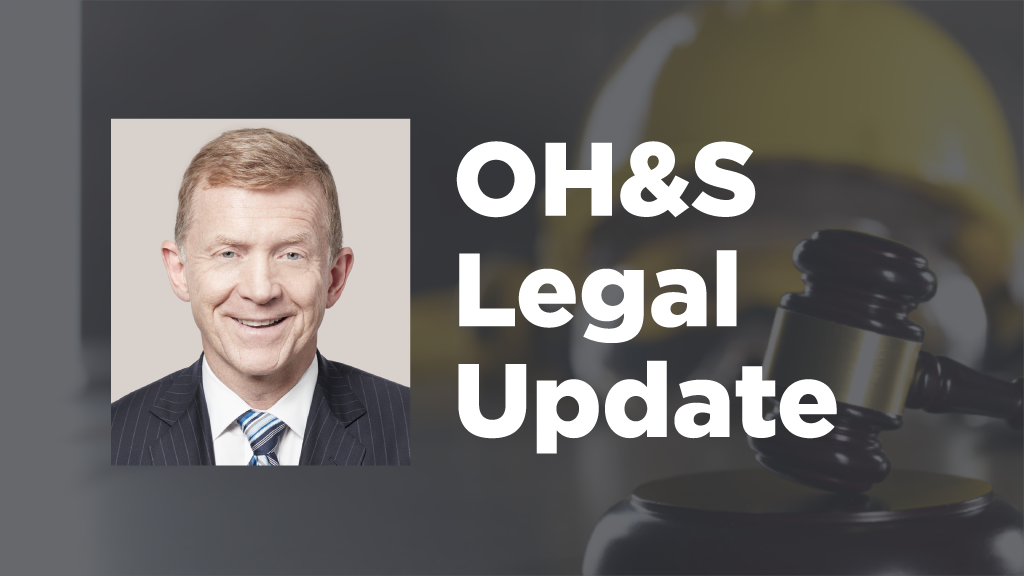Contractors and other Ontario employers may be looking forward to a refund of their historic overpayments to the Workplace Safety and Insurance Board (WSIB).
This development is part of a pre-election law passed by the provincial government.
On Dec. 2, 2021, the Ontario legislature passed Bill 27, the Working for Workers Act, that, among other things, authorizes the WSIB to “redistribute” surplus money in the insurance fund to Schedule 1 employers if the sufficiency ratio meets a certain threshold.
The WSIB is the workers’ compensation regulator in Ontario. The WSIB system, going back to 1914, is a no-fault system of compensation for workers who are injured on the job.
The historic trade-off was that workers receive worker compensation benefits regardless of the cause of a workplace injury and employers get the protection from the worker suing them for personal injury negligence claims in the courts.
Employers fully fund the WSIB system with no worker contributions.
The new law brought in under Bill 27 authorizes the WSIB to effectively give back some of the WSIB premium overpayments that employers have been making over the last number of years which has created a surplus from the employer over contributions. The WSIB has the discretion to distribute overpayments disproportionately based on prescribed criteria. That is where it gets tricky.
The WSIB may choose to deny some employers a reimbursement if the employer has been convicted during the preceding year for an offence under the Workplace Safety and Insurance Act (WSIA) or the Occupational Health and Safety Act (OHSA).
A contractor may also be denied if they have been convicted of more than one offence under the WSIA or OHSA in the preceding five years.
This potential denial of a refund will discriminate against employers who have chosen to plead guilty and not fight charges under the WSIA or OHSA in court, going back five years. Or to put it another way, it puts fault back into the no-fault WSIB system retroactively.
To put the icing on the proverbial cake, the new section 97.2 of the WSIA provisions are not decisions by the board per se and therefore employers do not have a right of reconsideration or appeal.
The WSIB decision to deny a contractor a refund is legally defined not to be a decision, at least for the purposes of exercise a right of appeal; make any sense to you?
Unless this provision is successfully challenged under the Charter of Rights and Freedoms, this new law prevents the WSIB denial of an employer’s refund, of its own money, from being challenged on appeal.
Remember, it is all the employer’s money that funds the WSIB.
One last take-away from the WSIB change for constructors is that this fault finding denial of a Bill 27 WSIB refund is yet another factor to consider when deciding to either plead guilty or defend charges under the WSIA or the OHSA.
An employer’s legal strategy should consider the impact by this new, non-appealable discretion to be exercised by the WSIB.
The new law may have a chilling effect on an employer’s desire to resolve charges amicably with the WSIB or the Ministry of Labour, Training and Skills Development.
Contractors facing charges and possible convictions under the WSIA and OHSA should get legal advice when facing those types of charges. Settling these regulatory proceeding will generate, in the authors’ view, an unfair double penalty on the employer, since they must pay any monetary penalty with a regulatory fine and then are then further penalized by the disqualification for the pending WSIB disbursement.
The WSIB power to disqualify construction employers is yet another anti-employer, fault-finding provision in the “non-fault” worker compensation system funded by Ontario employers.
Like the Fatal Claim Premium Adjustment, employers are financially punished within the no-fault WSIB system, if they plead guilty and pay a monetary penalty.
Contractors that have dutifully paid, and in fact overpaid their worker’s compensation premiums, may now be financially punished again for an unrelated decision to plead guilty, avoid the cost to the province of a trial, and pay a fine.
You can decide if that sounds fair to Ontario contractors.
Norm Keith is a partner at KPMG in Canada and is one of the leading occupational health and safety lawyers in the country. Eren Erinc is an associate with KPMG Law LLP, Toronto.
If you have any questions or looking for assistance with your WSIB matters, please contact Norm Keith or Eren Erinc or call 416-476-2002. You can also send OH&S Legal Update column ideas or comments to editor@dailycommercialnews.com









Recent Comments
comments for this post are closed